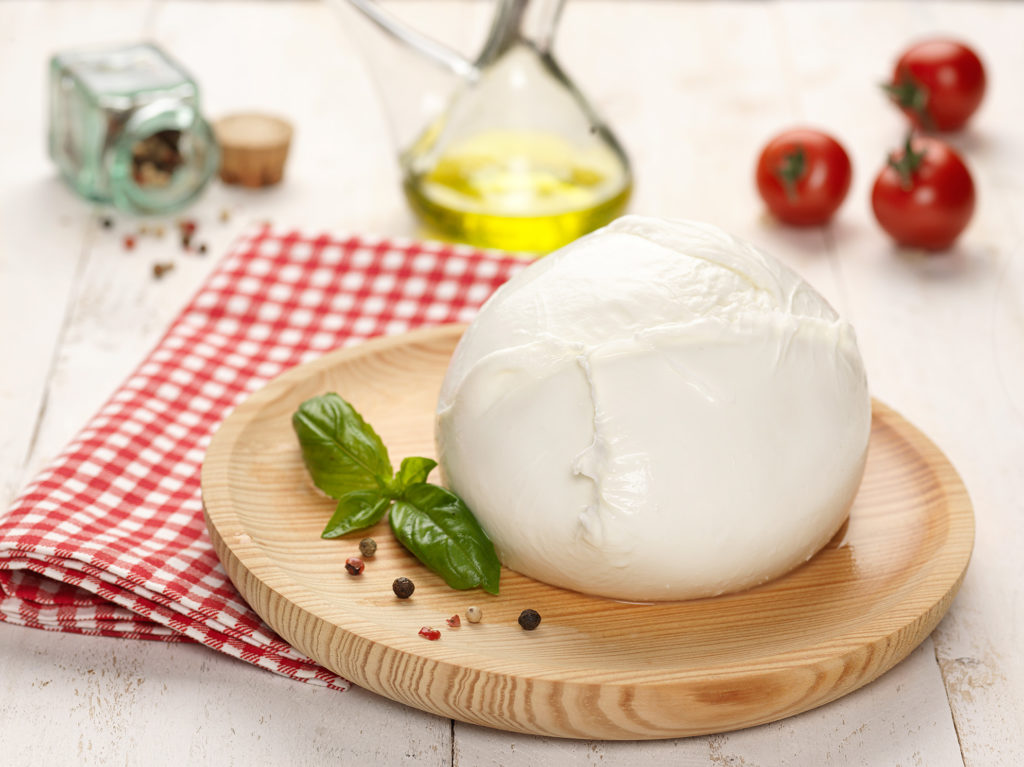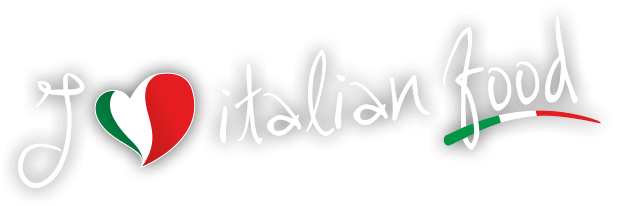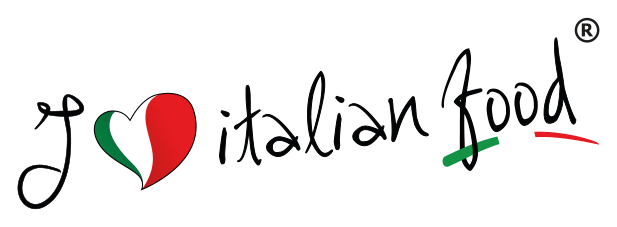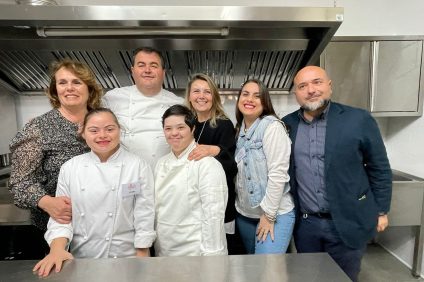Marika France she is 31, has lived in Germany since she was 23 and is in love with Berlin. Work as Sales and Executive Manager is preferably used for France Dairy products, historic dairy inaugurated in Pontinia by Enrico and Olivia Francia (of which Marika is the granddaughter) and then grown over the decades under careful family management to the point of becoming one of the main Italian dairy brands and also expanding in Germany. In 1990, in fact, Alceo Francia founded the company with a collaborator France Mozzarella GmbH in Berlin Reinickendorf, which since 1994 becomes the exclusive property of the Francia family. Today the Berlin branch, which since 2001 has moved to the more modern factory in Volkmarstraße, in the Tempelhof area, has over 60 employees and supplies a large slice of the German market with dairy products, but not only: mozzarella produced in Berlin are also exported abroad, including the Italian market. Marika traces to the microphones of Berlin Magazine a balance sheet of the first 26 years of France Mozzarella GmbH, explaining the difficulties and advantages of doing business in Germany and how Germans are gradually getting used to choosing more and more quality products of the Italian tradition.
26 years of activity in Berlin and Germany: a great achievement.
Yes, we are very happy with the results achieved. We have numerous Italian and German collaborators, but many also come from Poland, Eastern Europe, Spain. The plant and production manager is Italian, he is an engineer expert in dairy businesses who trained in Italy. In general, ours is a decidedly international work environment. Even if, at lunchtime, the TV is always on on some Italian channel.
Why did you decide to open here in 1990?
Because we had a whole series of advantages and incentives that were offered to industrial companies that wanted to open in Berlin. And then we had contacts, a small dairy with which we collaborated until 1994 to then take over it. It has been a path full of satisfactions for my family, although never easy, but the results speak for themselves in terms of product quality and turnover. We of the younger generation have tried to add our skills and knowledge of German - we are the first to speak it fluently - to a pre-existing entrepreneurial knowledge.
What type of market do you cover with your products?
I can say without fear of exaggerating that real mozzarella has arrived in Berlin with France. We mainly use local, Brandenburg milk, which is really good. But the real qualitative difference is made by the production processes we use. As German sales areas, we cover Berlin and Brandenburg, the entire north coast of Germany, the Hamburg area, Bavaria, Baden Württemberg. We are present with our brand in some very popular supermarket chains such as Kaiser's, Bio Company, Rewe and in Berlin we have also managed to enter a network of realities that want to enhance local and organic products. Much of Berlin's gastronomy, restaurants and pizzerias, is sourced from us. But with the production of the Tempelhof plant we also export, reaching as far as New York. And a large percentage goes to gastronomy in Italy, I would say around 50%. In general, 90% of the mozzarella we produce here supplies the gastronomy, not private tables.
How do you process your products?
Both in Italy and in Germany we operate on three types of products: for the province, with a two-day expiry date; for the region, with a deadline of ten days; and for the domestic-foreign market, expiry two weeks. In no case do we use preservatives, only productive measures on humidity. Working without using citric acid really makes the difference in terms of quality: the pizza chef or the gastronome who uses our mozzarella on their dishes will find a product with a higher yield, but above all that with a different flavor, which really tastes like milk and not. of nothing, as often happens. Citric acid, of course, has advantages at the production level, because it shortens certain processes and extends the expiration date. But its major flaw is that it doesn't make the product as manipulable as it naturally would. With this type of more genuine processing, the price is inevitably slightly higher, we cannot work miracles: but gastronomes are increasingly understanding that in the end quality also pays off on an economic level: a product that uses citric acid will have a 20% lower yield than a natural product in terms of the amount of mozzarella that can be put, say, on the pizza so that it melts well and covers the desired surface. So the savings of those who choose the cheap product are only apparent, because in the end they will have to use more mozzarella, and the costs will eventually coincide. With the difference, however, that with a poor mozzarella the pizza will never be as tasty.
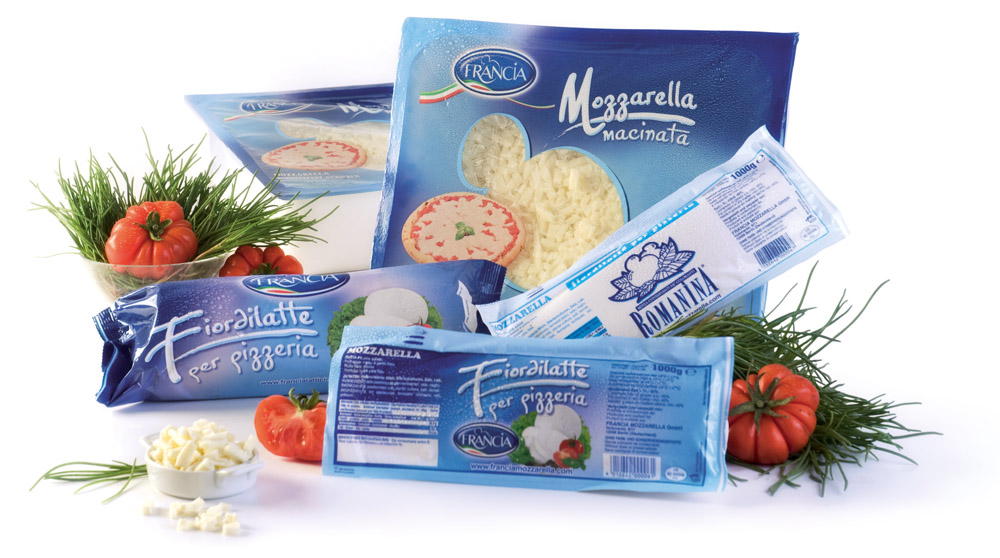
Do you have many competitors on the German market?
It is still a tough struggle, because hardly any company declares the origin of the raw material, and in Germany there is a lot of milk. And above all, the term "mozzarella" is not protected, so it can be called anything that has been produced by spinning and heating a curd. There are companies that, not being able to work otherwise, buy curds already frozen, perhaps produced at a time when the cost of the raw material is particularly favorable, and spin these directly, then obviously managing to offer greatly reduced prices. In short, there is a way and a way to make a mozzarella. We have no competition from companies capable of producing with our methods, at least not in Berlin. Maybe in southern Germany, yes. For the rest, these are dairy companies that often make a product that can be defined as mozzarella only on the packaging, convenient for the gastronome who needs to save and therefore cuts on quality.
Do Italian gastronomes do it too?
Yes, because it is more mandatory to include citric acid among the ingredients, whereas it was until a few years ago. I think that things have also changed due to strong economic interests given that, within the European market, both France and Germany have some of the largest dairy companies in the world.
Is the German consumer educated to taste and attentive to the quality of the products?
After years of effort, also thanks to a certain communication strategy that we are trying to maintain, things are changing a bit, at least in Berlin. The Berlin reality has always been more open than in other areas of Germany. More and more often the quality gastronome who uses our product is keen to point out that he uses a quality mozzarella, he wants our brand to appear. And gradually the private consumer, the average German, also began to get to know our product and appreciate it. Of course, there is still a lot of work to be done, but I strongly believe that high-level Italian restaurants can help to "educate" people who are not used to this type of gastronomic culture to taste. It is a time-consuming process, and it takes patient communication in language. We are one of the realities that have decided to accept this challenge, and in Berlin we are gradually winning it also thanks to the help of the gastronomes who have chosen to focus on a different, quality cuisine. I have been in Germany for eight years, I travel a lot for work and I see increasingly demanding, dynamic, modern restaurateurs. In some respects, at least when you consider the peaks to the top, I have the opportunity to eat Italian better here than in Italy. I also lived in Turin for a year, and I was amazed to find restaurants that cook pizza in the pan or in the pan. In Berlin such a thing, within the real Italian gastronomy, becomes less and less probable. Sometimes I think that this "taste education" we were talking about should be done first of all in Italy!
Is doing business in Germany easier than in Italy?
Here in Germany, if the state owes something to the company - VAT refunds for example - then it returns it on time. There is clarity, which is lacking in Italy, at least from what they tell me, given that my entire career of sales manager took place abroad. Here there is punctuality in deadlines and checks, which however are not necessarily done to damage the company, to fine it and block refunds as can happen in Italy. Overall you can work better, it is still possible to do entrepreneurship, because any industrial reality has obligations, but also rights that are recognized and respected. These are the decisive differences because then the cost of labor and the union protections are more or less similar. The tax burden is also more or less the same, perhaps slightly lower here in Germany.
How are you in Berlin?
I am in love with this city. I have been living here for 8 years, ever since I finished university. After graduating in languages there had already been love at first sight with the German capital, so the decision to move and continue the family business was almost obvious. Coordinating the commercial marketing department is a job that I really enjoy. But not all members of the French "dynasty" are involved in the enterprise. Some of my generation preferred to have other types of experiences but yes, we are many: the company was founded by my grandfather Enrico with his two brothers, each of them had three children and so we are already nine. If you think that each of the members of the "second generation" has had two to three children in turn, it is not difficult to understand how it is that I lost the accounts within my family (laughs, ed
